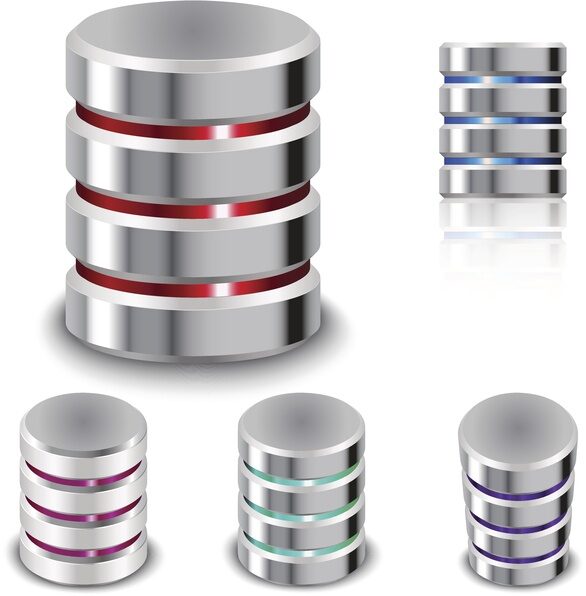As your company expands, keeping track of all your product data can be very difficult. References, Descriptions, prices, … you have to update quickly and this can be complicated to manage. Fortunately, there are several Product Information Management Platforms (PIM, of English Product Information Management). It's different database types specialized in large retailers which can help you better manage all this information without taking into account the number of different references you have.
Photo credits: istock Roxiller
Let's see 3 of these different types of database or PIM that manage the product information of the main and most important ecommerce.
3 types of databases that interest your business
-
Product 360 – Informatica
Even though most PIM solutions come in separate modules, this is not the case with Informatica Product 360. This alternative also has other advantages, such as the ease of integration and the fact that, to start using it for the first time, you just need simple configurations.
It is a complete and complete information center that brings together all the data extracted from the different channels and platforms of retailers. Of all types of databases on the market, Informatica's initiative is best for B2C retailers. What they are looking for:
- Shorten your supplier integration procedure.
- Optimize the accuracy of your product data.
the main features of this solution include the following:
- Much more than collaboration– Informatica's approach is easy to use and results-oriented. Provides a simple means of web collaboration where to condense all the information from outside and inside the organization, which is completed with the robustness of its exception handling and increased fail-safe functionality.
- Reliability: By including data quality capabilities, increases transparency in data management and facilitates audits, thanks to Role-based views, a detailed user concept and advanced business process management options.
- Omnichannel: Informatica offers exportsPredefined channel previews and user interfaces, certified, configurable and editable for major systems and commercial channels such as IBM, Hybris, Demandware or Oracle, among others.
- Sales and Marketing: By integrating this solution with Google Manufacturing & Merchant Center simplifies lead search and conversion tasks, who may end up becoming customers.
- Integration: Informatica's response includes integrated digital asset management for marketing users, with fully automated data processing capabilities.
- DAM: Integrate a module Digital Asset Management (DAM) that allows you to structure and manage multimedia resources (images, audio and documents) from a single source, making it easier for you to format and work with it.
- Exclusivity: there is no other solution on the market that guarantees end-to-end master data management. Scalability makes it possible to expand business-critical master data with a single solution that includes multi-domain MDM, Big Data, DaaS, Data Quality and Business Process Management, suitable for cloud or on-premises environments.
2. IBM InfoSphere
IBM InfoSphere is a robust solution capable of providing real-time data. Decision making is optimized, also due to its data aggregation and syndication functionalities, collaborative workflows, audit, flexible data modeling or reporting.
Retailers can benefit greatly from InfoSphere, since consolidate data across all channels, including e-commerce, mobile environments, the shop and printed catalogues. In reality, its design focuses on the B2B retailer, as it provides an effective means of sharing up-to-date, real-time information with partners and suppliers.
InfoSphere is one of the most popular PIM solutions, mainly for:
- Great data refresh capabilities.
- Advanced reporting and auditing features.
- Scalable modeling capabilities.
- Rich text editors for web content.
-
ADAM
ADAM's PIM response is one of those types of databases designed to drive the customer experience, not just the user. Its objective is to facilitate the updating of information by any member of the organization, erase data silos and help build a rich experience, informative and up-to-date for the customer in all channels.
This solution is especially suitable for B2C retailers who want to move towards a customer-centric approach Y, therefore, offers advanced tools for workflow and content management, which can be complemented by the use of the marketing platform of the same provider.
Those considering selecting ADAM over others database types they should know that:
- All your options are customizable.
- Ensures brand consistency, product details and marketing initiatives.
- Works seamlessly with rich media, including video, audio and images.
- Provides accelerated workflows for content creation, product launches, translation, location and more.
Do you know other types of databases or PIMs that manage the information of the great ecommerce or do you consider that there are other more important ones? Let us know through the comments.
(function(d, s, id) {
var js, fjs = d.getElementsByTagName(s)[0];
if (d.getElementById(id)) return;
js = d.createElement(s); js.id = id;
js.src = “//connect.facebook.net/es_ES/all.js#xfbml=1&status=0”;
fjs.parentNode.insertBefore(js, fjs);
}(document, ‘script’, 'facebook-jssdk'));







